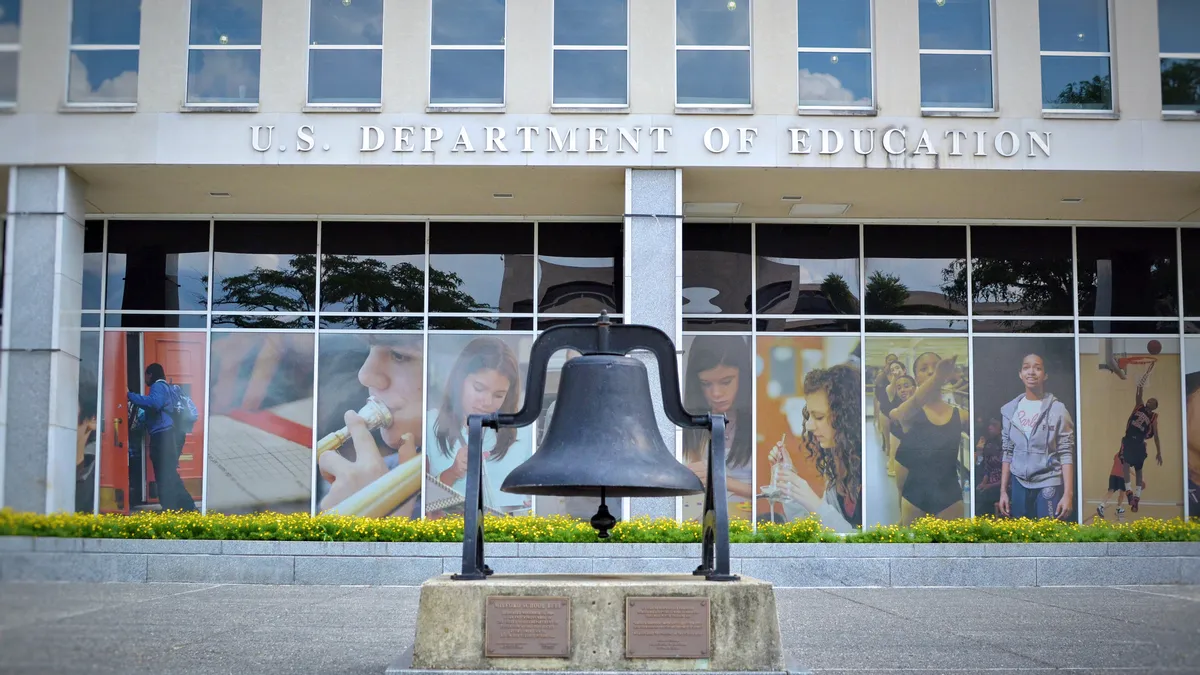Dive Brief:
- The U.S. Department of Education is threatening to revoke colleges' access to federal financial aid if they fail to adequately report their financial ties to foreign entities.
- The agency, in a document posted to the Federal Register on Friday, said it was highlighting the potential for it to take such an action in light of "widespread underreporting."
- President Donald Trump's administration has been cracking down on colleges' involvement with foreign groups, particularly those in China, throughout the last four years.
Dive Insight:
Section 117 of the Higher Education Act mandates colleges report to the Education Department any gifts and contracts with foreign countries and organizations that total $250,000 or more in a year.
But the department has said institutions have provided an incomplete picture of their financial connections outside the U.S., and for several years it has beefed up enforcement of the federal law. It opened investigations into a dozen high-profile schools, and from those, said it discovered more than $6.5 billion in foreign money that went undisclosed, among other reporting failures.
The department, in the document posted Friday, said colleges that don't properly detail their foreign financial ties have violated the terms of receiving federal financial aid. The agency could then "implement a range of corrective measures," including taking away Title IV funding.
It also noted it had the power to subpoena certain records when looking into whether colleges breached Section 117.
Department spokesperson Angela Morabito wrote in an email that the federal law went "largely ignored for decades."
"The Department has created a modernized reporting portal to make it even easier for institutions to fulfill their legal obligations, and institutions have a legal duty to follow this federal transparency law," Morabito wrote.
Colleges, meanwhile, have been clamoring to understand their obligations under Section 117. The American Council on Education, the leading higher education lobbying group, has written to federal officials several times asking for clarification.
ACE has also complained that the department's new checklist for information colleges need to provide on foreign gifts exceeds the scope of the HEA.
Terry Hartle, ACE's senior vice president of government relations said the department is giving itself regulatory authority "it wishes it had as opposed to the power that the law actually provides."
Hartle said the department, schools and public would be better served if the agency concentrated on explaining how institutions can comply with Section 117.
"Rather than do the hard work of facilitating compliance by answering questions, the department assumes that compliance will improve if it just imposes more requirements and stiffer penalties," Hartle said.
The Trump administration has intensified its scrutiny of colleges' relationships with foreign entities, especially since a Senate subcommittee investigation found last year that colleges didn't properly report payments from Hanban, the controversial educational arm of the Chinese government that oversees Confucius Institutes.
This story has been updated with a comment from the U.S. Department of Education.














